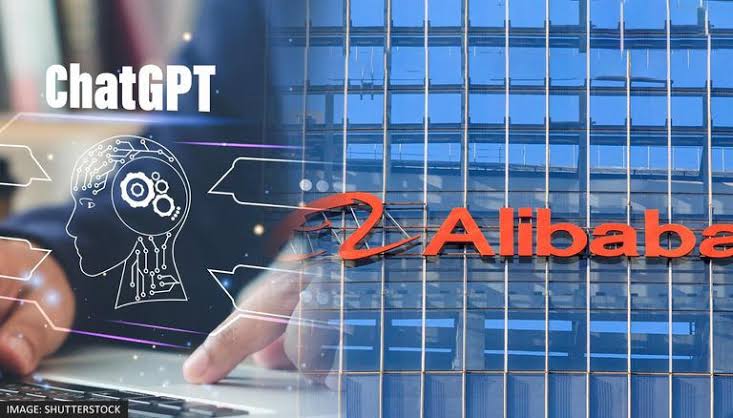Alibaba, a Chinese tech company, has said it wants to release a product similar to ChatGPT called Tongyi Qianwen. This product will use artificial intelligence (AI) and will be similar to ChatGPT.
Its cloud computing division says that it will add the chatbot to all of Alibaba’s businesses in the “near future,” but it didn’t say when.
Technology firms from all around the world have recently revealed their own “generative AI chatbots” in recent months.
Alibaba stated earlier this year that it was developing a ChatGPT firm.
Tongyi Qianwen means “asking a thousand questions to find an answer,” but Alibaba hasn’t given an English translation of the name.
“We are at a technological turning point because of generative AI and cloud computing,” Alibaba’s chairman and CEO Daniel Zhang said when Tongyi Qianwen was released.
Tongyi Qianwen, which can operate in both Chinese and English, will initially be added to DingTalk, Alibaba’s office messaging app.
The company stated that it would carry out a variety of activities, including recording meeting interactions into notes, composing emails, and creating business proposals.
Even though this is a new project for Alibaba, its cloud unit plans to let clients use the AI model Tongyi Qianwen to build their own language models. Soon, users will be able to sign up.
Read also: ChatGPT Users To Pay $42 Subscription Fee
Alibaba’s rejection of AI regulation
People all around the world are aware that AI tools frequently resolve problems and considerably simplify our work, but many of them are pessimistic about the future and want to regulate the field of generative AI technology.
In the past few years, there have been a lot of complaints about the social consequences, possible abuses, cyberattacks, and dangers in the social dynamics of the workplace that could lead to the loss of intellectual property.
The Cyberspace Administration of China (CAC) has reportedly prepared rules to regulate the generative AI sector to reduce the risks associated with cutting-edge technology. AI content generation, especially on sensitive issues, must comply with China’s data security and personal information protection rules.
Companies must submit security assessments to regulators before launching products. This may slow growth, but it would also prevent foreign firms from offering AI services in the country, benefiting local firms.
Countries have delayed, limited, or stopped AI trends before. Italy briefly banned ChatGPT last month. North Korea restricts internet use, including the AI chatbot. This group includes Iran, Syria, and Cuba.
Montpellier banned ChatGPT for city employees as a precaution. The UK’s independent data regulator wants to “encourage” AI but “challenge” corporations that violate data protection laws.
A long list of well-known technologists, businesspeople, and researchers, including Elon Musk and Steve Wozniak, have also asked AI labs to stop working on active AI systems right away to avoid risks.
About Alibaba and ChatGPT
E-commerce, retail, the Internet, and technology are Alibaba’s specialities. The company, formed in Hangzhou, Zhejiang, on June 28, 1999, provides C2C, B2C, and B2B web portals, electronic payment systems, retail search engines, and cloud computing. It runs businesses internationally.
Alibaba is one of the world’s largest retail and e-commerce companies. It was ranked as the fifth-largest artificial intelligence company in 2020.
It is also one of the largest venture capital firms and investment companies in the world. Through its fintech arm, Ant Group, it is the second largest financial services group after Visa.
The company runs the largest global B2B, C2C, and B2C markets. Its sales have increased by three percentage points per year since entering the media business. It broke Singles’ Day in 2018.
OpenAI announced ChatGPT, an AI chatbot, in November 2022. It uses supervised and reinforcement learning to fine-tune OpenAI’s GPT-3.5 and GPT-4 families of large language models (LLMs).
ChatGPT was developed and tested on November 30, 2022. Its thorough and well-reasoned solutions in many fields gained recognition. Nonetheless, its uneven factual use is a major issue. OpenAI was valued at $29 billion in 2023 after ChatGPT.
ChatGPT’s first version was based on GPT-3.5. On March 14, 2023, a version based on GPT-4, the newest OpenAI model, came out and is only available to paid subscribers for a limited time.




